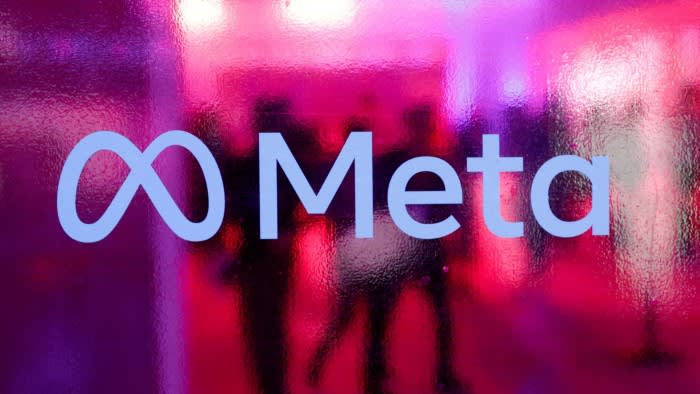Unlock the Editor’s Digest for free
Roula Khalaf, Editor of the FT, selects her favourite stories in this weekly newsletter.
Investor tolerance for extravagant corporate spending on artificial intelligence is showing signs of fatigue. Meta shareholders were willing to back Mark Zuckerberg’s AI ambitions when the company’s digital advertising business was humming, costs elsewhere were coming down and cash was being handed back. They are more circumspect now that revenue growth is slowing and costs are rising.
Meta has drawn praise for the technological prowess of its generative AI projects. Unlike some of its Silicon Valley peers, these are being developed in-house. This month the company announced its first designed chip for running AI models and the latest version of its generative AI model, Llama 3.
As with the company’s virtual reality metaverse plan, however, AI is a multibillion-dollar project with no clear timeline for revenues. Meta says it will raise spending this year by up to $10bn to cover infrastructure costs. While it does not break out AI spend in the same way that it does for the metaverse, costs are reflected in capex. Last year, capex fell to $28bn. This year, Meta expects annual capex to reach up to $40bn, $3bn more than first expected. This would equal 25 per cent of forecast annual revenue. Next year, the total will be higher still.
Even with billions of dollars pouring in it is still not clear what sort of AI company Meta is building. It is not selling the chips it designs or the generative AI model it builds, which is open source. Revenue still comes from the company’s digital advertising business with a small sideline in VR headsets.
Meta has been integrating generative AI into products such as Instagram and Facebook in an attempt to boost engagement. But it has not provided details on any increase in the time users spend staring at these apps on their phones. Third-party estimates, including a study by non-profit Common Sense Media, suggest it will need to boost engagement by hours each day to catch up to TikTok. A US ban on the addictive video app could benefit Meta, which has a rival product in Instagram Reels. But this potential outcome is years, and a legal fight, away.
Meta has funds to spend. In the last quarter, operating profit rose 91 per cent. Buybacks and dividends are not in danger of being withdrawn. Still, it is difficult to predict how much Meta plans to spend on AI. Zuckerberg attempted to quell concerns by comparing the project to previous investments in Reels or Stories. But these were far smaller. The scale of the company’s AI ambitions is only just starting to emerge.
elaine.moore@ft.com
Credit: Source link














